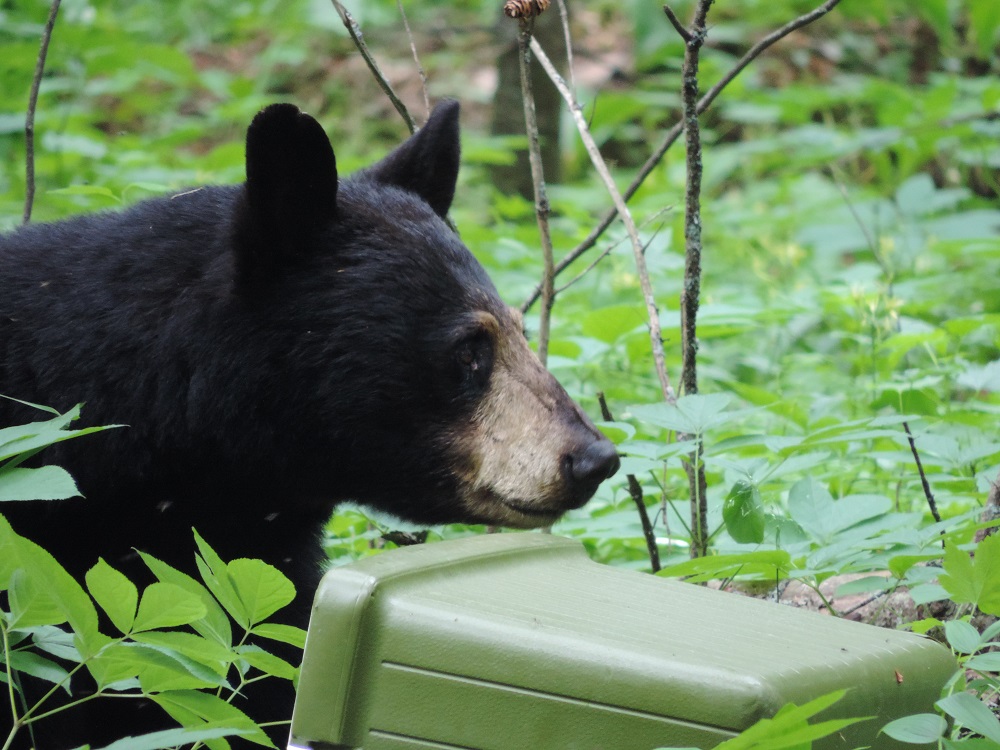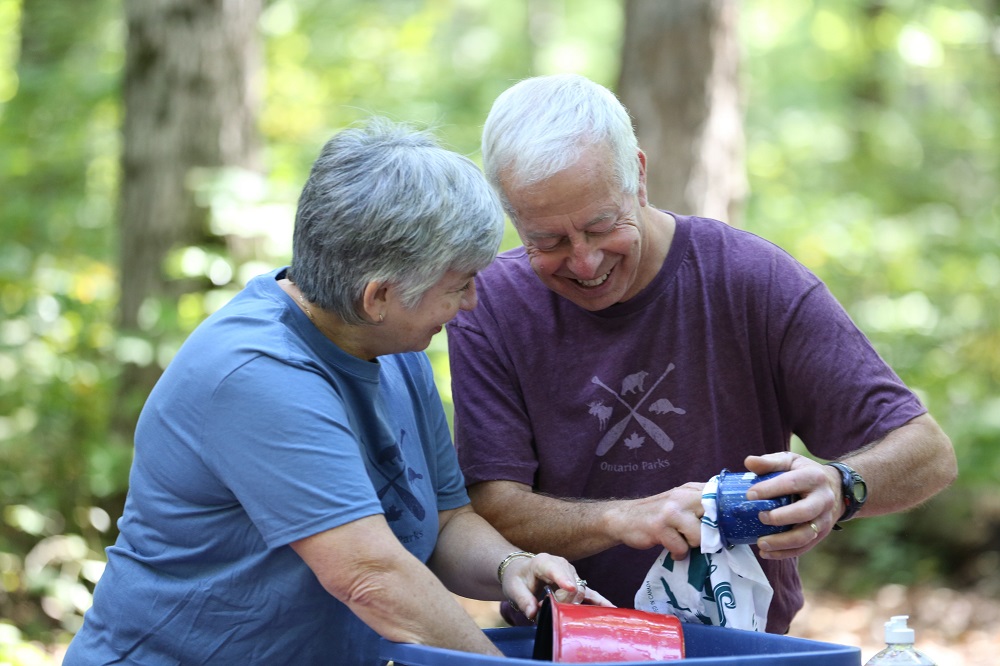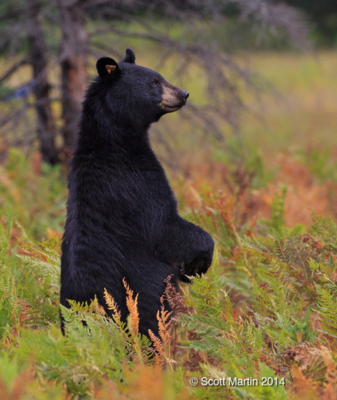Black Bears live across Ontario in forested areas where they can find enough food, shelter, and denning sites. Our provincial parks are their home, and over 90% of our parks are in bear country.
A safe bear sighting during one of your adventures with Ontario Parks can be a lasting memory. Educating yourself about bears before your visit is important and the mark of a responsible park visitor.
We want to share space with bears, keeping our human visitors and all our wildlife residents safe.
If you’re planning a visit, here are some important safety tips about Black Bears:
Be aware of Black Bear habits
In Ontario, Black Bears hibernate from November to April.

During this time, they don’t eat, losing body weight and come out of their dens in the spring hungry and skinny.
Black Bears are omnivores whose diets mostly consist of vegetation. Because there are few berries or nuts in the early spring, they don’t start gaining weight until early July.
Basically, Black Bears only have five months to eat enough food to survive for an entire year.
This small window of time to gain weight strongly influences Black Bear behaviour.
In years when warm days and rain are abundant, park visitors may rarely see a Black Bear on the side of the road, on a hiking trail, up a tree, or swimming across a river.

However, when natural food sources are poor due to drought and heat, Black Bears will go to great lengths to find food. This might be a time when campers see them near campgrounds.
Know how to “bear-proof” a campsite
Bears are normally shy of humans, and are quick to get out of our way.
However, they are very smart animals. When they find food at a campsite, they quickly associate people and campsites with food instead of something they should be scared of. They won’t continue to be shy if they think they can get a free meal!

Because our visitors are in Black Bear habitat, it is important to do everything possible to keep ourselves and our campsites clean and free of wildlife attractants.
Wildlife attractants (i.e., things bears will want to eat) include:
- food and food storage containers, such as coolers or plastic storage totes
- dog food dishes
- barbecues
- camp stoves
- dirty dishes
- garbage
- toiletries
- bird feeders
All wildlife attractants are best stored in the trunk of your vehicle with its windows closed, where they can’t be seen or smelled.
Also, leaving food and other attractants available for wildlife is against the law, and violators may be fined and/or evicted under the Provincial Parks and Conservation Reserves Act.
Know how to “bear-proof” in the backcountry
If you are backcountry camping, be sure to pack wildlife attractants in several layers of packaging to lock in scents.
Prepare food far from your site, clean your dishes immediately after eating, and secure garbage for the trip out.

Do not store anything but your sleeping bag and pillow in your tent.
Always hang food packs far from tenting and cooking areas, at least 4 m above the ground and 2 m away from tree trunks.
Know what to do when hiking in bear country

Pack any snacks in several layers of packaging to reduce scents. Don’t wear headphones, and always be aware of your surroundings.
Travel in groups of two or more people, and watch for signs of bears.
Always make noise. It’s a good idea to bring a whistle to help scare bears away.
Keep dogs on leashes at all times. An unleashed dog running ahead on the trail might provoke a bear and lead it back to you.
Safety starts with knowledge and preparation
When visiting our parks, you are sharing the forest with animals, including birds, insects, and — yes — Black Bears.
Remember that Black Bear encounters only happen because we visit the forests that are their homes.
Want to learn more about what to do if you encounter a bear? Click here.

Safe hiking and camping practices will significantly reduce any risk of an encounter. Be sure to consider wildlife attractant storage, preparation, and disposal before your next camping trip.
Respect bears’ space, and be a responsible park visitor.
Learn more about being Bear Wise
If you spot a bear, call your park warden or the Bear Wise hotline at 1-866-514-2327. In an emergency, always call 911 or the local police.
